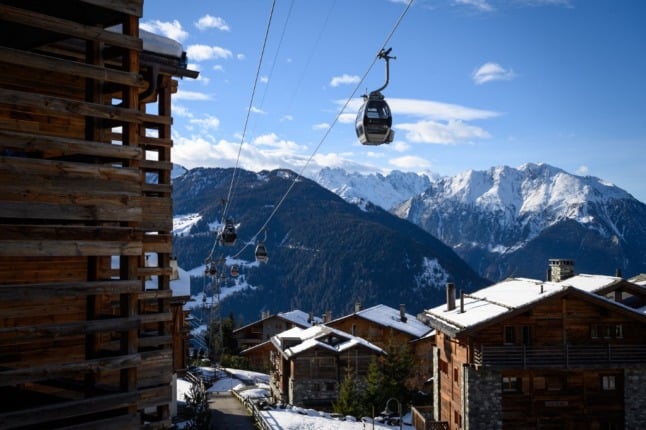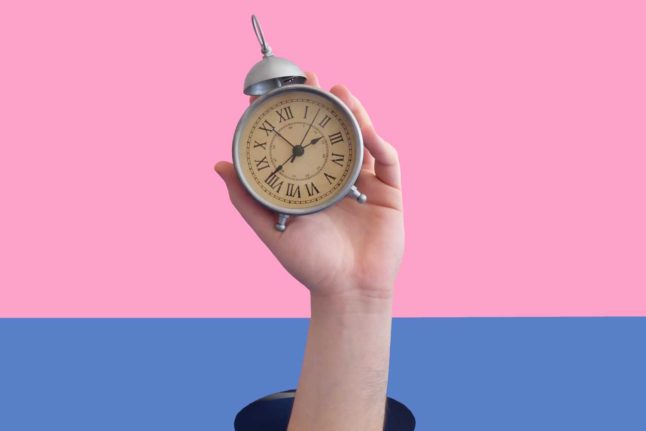The final month of 2021 is upon us. And while many of the big changes will take place in January of 2022, there are a few important ones that you should be aware of this December.
Insurance
If you’re reading this in November, then you’re in luck. You have until the 30th of November to switch your healthcare plan in Switzerland to another one.
In that sense, this isn’t so much a change in Switzerland you need to be aware of – but it is still a deadline which might be incredibly important, particularly if you have found a better plan or you are unhappy with your health insurance company or contract.
Everything you need to know about health insurance in Switzerland
Cantons will toughen Covid rules
As the Federal Council has passed the implementation of new health rules on to the cantons at the end of November, the Conference of Health Directors (CDS) said that they are “determined to assume their responsibilities”.
Throughout December they will introduce rules with varying degrees of severity, depending on the epidemiological situation in each canton.
READ MORE: What are the Covid measures in your Swiss canton?
Some of the measures are likely to include expanded mask requirements and additional testing rules, however stricter measures such as bar closures may also be on the cards.
Stay tuned to The Local Switzerland for up to date coverage of the measures that apply in your neck of the woods.
…and so (might) the federal government
Switzerland’s federal government has repeatedly said it is the cantons who must take charge in the fight against Covid, although more than a few experts have suggested this probably has a lot to do with the Covid referendum on November 28th.
READ MORE: Is Switzerland delaying imposing new measures due to Covid referendum?
While the government’s measures to fight the virus – which include the Covid certificate – passed at the ballot box in November, the government may be taking a more careful approach so as to not risk a protest vote.
As at December 1st, there is the chance that the government will tighten measures, although exactly what and by how much remains to be seen.
In this following report, we looked at some of the potential measures that could be implemented at a federal level.
READ MORE: What new Covid-19 rules are likely in Switzerland?
On November 30th, the government outlined a range of possible measures and sent them to the cantons for approval.
While the cantons won’t make their decisions before December 3rd, here’s what the government is pushing for.
READ MORE: Switzerland flags new measures, expansion of Covid certificate
Travel rules
One major change which blindsided most of Switzerland including us here at The Local was Switzerland’s travel rules, which were tightened without warning on November 26th.
Arrivals from dozens of countries are now required to quarantine, while around ten countries are banned outright.
With the situation changing constantly, check the following link for up to date information.
UPDATE: What are the current rules for entering Switzerland?
Swiss Federal Railways (SBB) release their 2021 timetable
As it does each year on the second Sunday of December, SBB will publish its new timetable on December 12th.
One of the features of the 2021 schedule are international rail links.
In cooperation with Austria’s ÖBB, SBB will operate a daily Nightjet service with sleeping from Zurich to Amsterdam via Basel and Cologne.
Also, the journey time for EuroCity trains between Zurich and Munich will be reduced by half an hour to 3.30 hours on three of the six routes. From spring 2022, all EC trains will run between Zurich and Munich in 3h30.
On the Basel – Bern – Brig — Milan line, one additional EuroCity per direction will run daily.
More information about the new timetable can be found here.
Booster shots
Swissmedic approved booster jabs for everyone over the age of 16 on November 23rd, however the Federal Vaccination Commission has not yet handed down an approval.
As vaccinations are the responsibility of the cantons, booster shots will gradually be rolled out across the country in the coming weeks. While the cantons do not need federal approval to administer boosters, most are waiting to get the green light before going ahead.
The southeastern Swiss canton of Graubünden, sometimes known in English as Grisons, became the first to start administering booster shots from Monday, November 29th. Other cantons are expected to follow throughout December.
Ski season has started in Swiss resorts
Most of Switzerland’s ski resorts will be opened in December.
This year, unlike 2020, skiers from abroad are welcome, as long they follow Switzerland’s entry rules. How easily you can enter the country depends on your vaccination and immunity status.
Covid certificate is not required to hit the ski slopes or on chairlifts.
Winter sports: Which Swiss ski resorts are already open?
Ski areas are nevertheless free to put in place a Covid certificate requirement if they deem it appropriate.
It is, however, required in bars and restaurants in the ski area, although people eating and drinking on terraces and balconies will not need it.
Masks are compulsory on chairlifts and on mountain railways and cable cars.

READ MORE: EXPLAINED: Everything tourists should know about skiing in Switzerland
Christmas markets are back!
Absent in 2020 due to the pandemic, Christmas markets will be open throughout most of December across Switzerland.
Covid certificates are obligatory to access most markets but regardless of whether you will need a certificate to enter, you will have to show it in all indoor bars and restaurants within the market’s territory.
This link explains what rules apply where:
What are the Covid rules for Switzerland’s Christmas markets?

Zurich Christmas market is one of Switzerland’s most colourful. Photo by Zurich.com
December 31st: Farewell to 2021
As this year is drawing to a close we can be grateful that it wasn’t as awful as 2020.
Progress has been made on the pandemic front, and the economy as well as the job market have rebounded.
Here’s looking forward to an even better 2022.



 Please whitelist us to continue reading.
Please whitelist us to continue reading.
Member comments